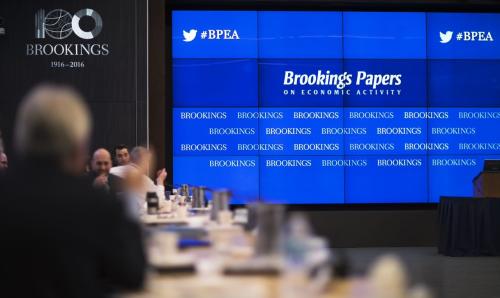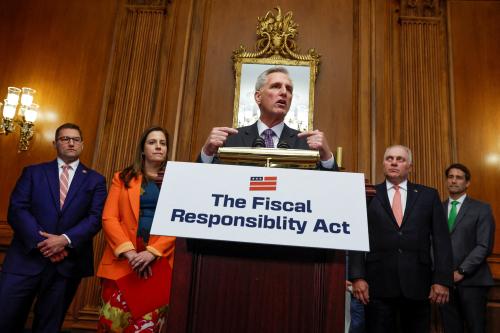An interesting narrative has emerged about Rep. Ron Paul’s (R-Texas) improbable victory during recent proceedings of the House Financial Services Committee. After nearly 30 years of advocating tough reform of the Federal Reserve, Rep. Paul’s amendment to subject the Federal Reserve to a comprehensive audit was adopted with the support of all of the panel’s Republicans and over half of the panel’s Democratic members. At the time, reporters noted that the key to Rep. Paul’s win was convincing fellow Democrats that the liberal base of the party was behind them. Indeed, a letter in support of Rep. Paul’s amendment from labor leaders and progressive economists was circulated the morning of the vote, and was said to be instrumental in getting Democrats to break ranks with their committee chair, Rep. Barney Frank (D-Mass.).
Given congressional efforts to reform the financial regulatory structure—including the powers of the Federal Reserve—a better understanding of recent House developments is in order. Was this an ends-against-the-middle coalition? Did liberals and conservatives find common cause with the libertarian Ron Paul to defeat the ideological center? A careful look at the voting patterns in committee debunks that narrative. Rep. Paul succeeded because he was able to secure the overwhelming support of the committee Democrats who had already publicly endorsed Rep. Paul’s audit bill.
Most importantly, those Democrats are not disproportionately liberal. When we analyze the set of roughly 150 House Democrats who co-sponsored Rep. Paul’s audit bill, a few statistical trends emerge. First, freshmen House Democrats were more likely than their colleagues to co-sponsor. Second, Blue Dog Democrats—not liberal Democrats—were more likely to sign on. Third, members of the Financial Services Committee—more reluctant to enhance the transparency of the Federal Reserve—were less likely to lend their name to Ron Paul’s effort. Finally, Democrats who hailed from districts that voted overwhelmingly for President Obama in the 2008 elections were actually less, not more, likely to formally support auditing the Fed.
The coalition to rein in the Federal Reserve appears to run from center to the far right—meaning that House Democratic leaders’ work is cut out for them if and when they seek to alter the audit language and to preserve some independence for an embattled Fed. Converting moderate and conservative Democrats—eager before the elections of 2010 to cast sunlight on the Fed’s internal operations—may prove a tough task. As the two chambers struggle to find regulatory reforms that can garner supermajority support, a center-right coalition to rein in the Federal Reserve will be hard to ignore.



Commentary
The Movement to Audit the Federal Reserve
November 25, 2009